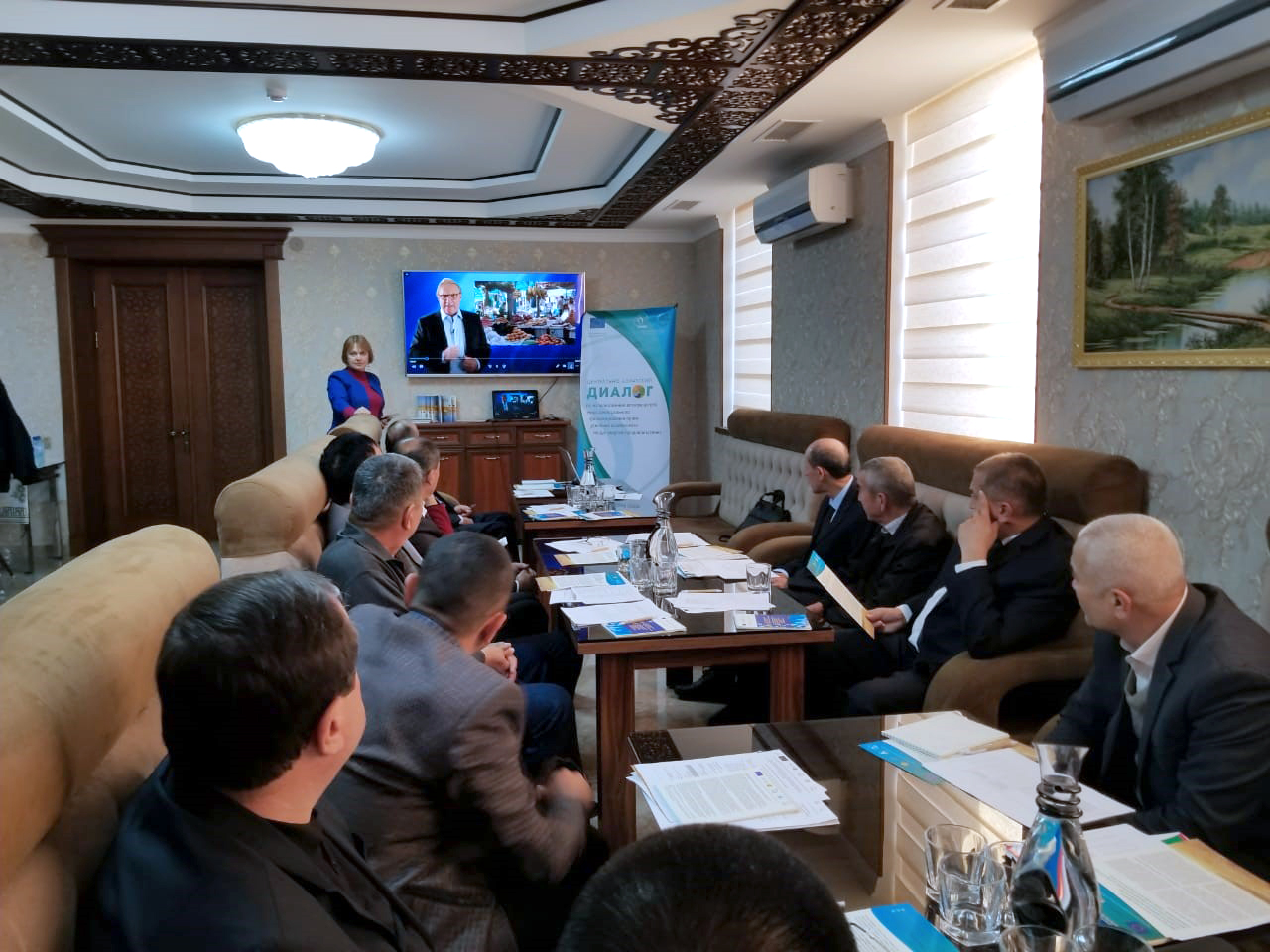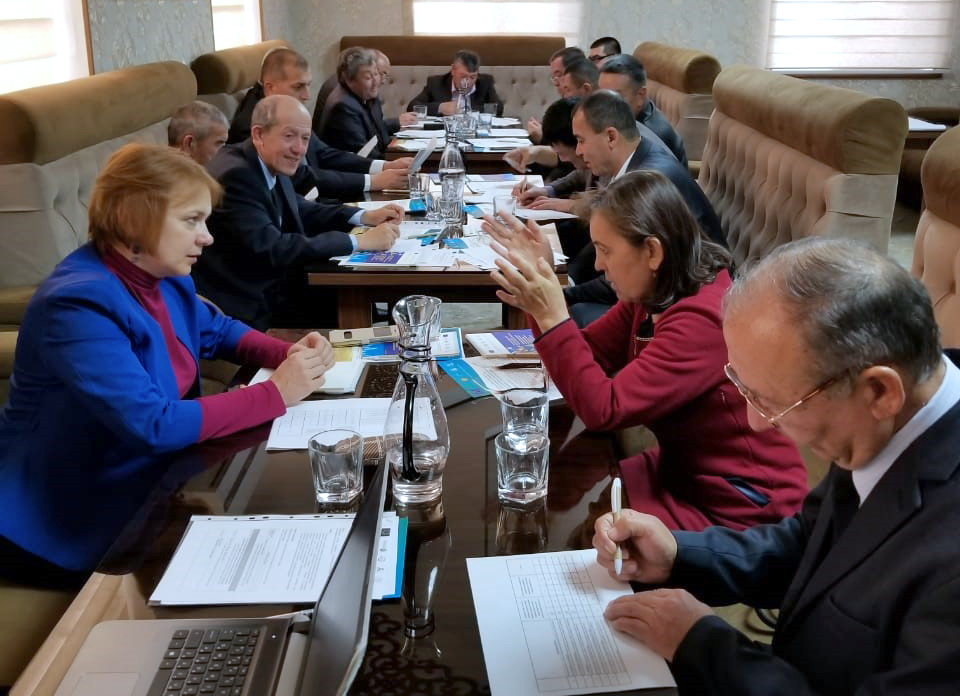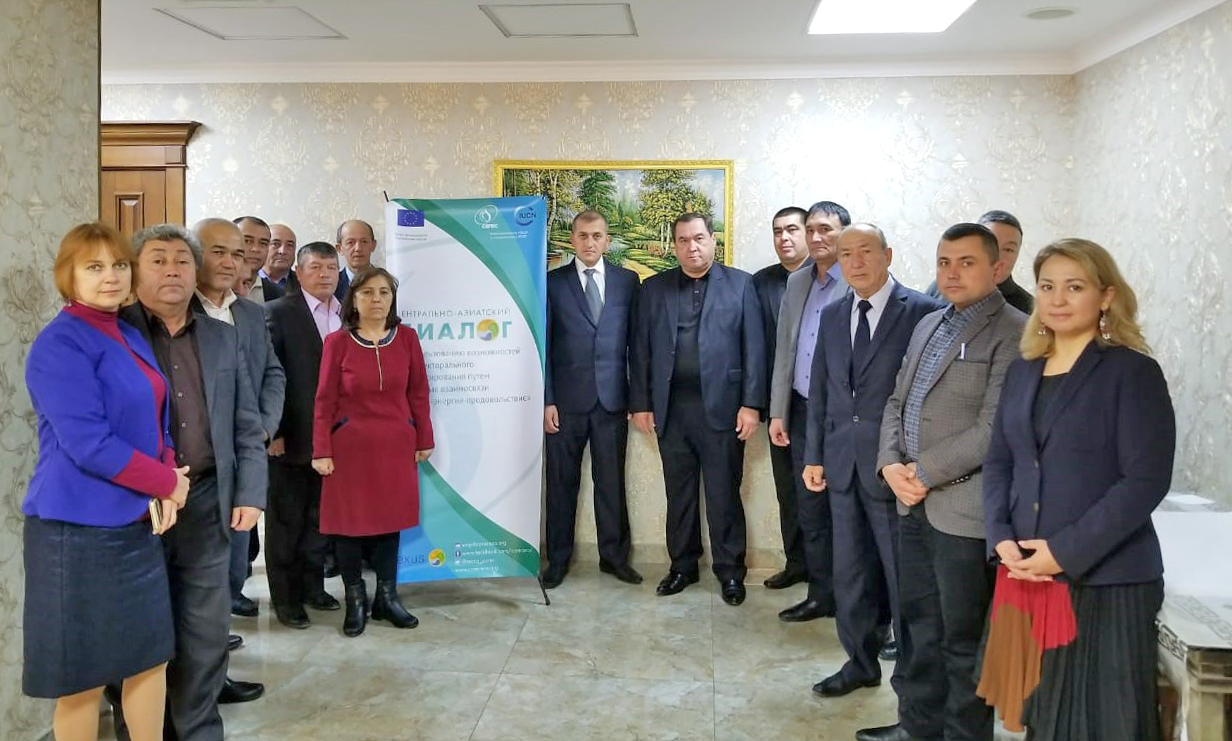The current global trends, related to the economic advance, population growth, urbanization, and changes in the consumption patterns will objectively result in increased water, energy and food consumption. For ensuring water, energy and food security, it is required to take into account the interconnection of these sectors.
“Unfortunately, technological improvements don’t always imply saving these resources. Moreover, under the conditions of severe resource constraints, the traditional decision-making theory is no longer as effective as it used to be. Consequently, the importance of a human factor is gaining momentum and the key role, played by the people, consists in ensuring the effectiveness of technological innovations, their reliability and sustainability in the context of climate change. The business sector is already displaying an ever-increasing understanding of the benefits from the implementation of integrated investment decisions, now it’s the turn of the government”, - says Saltanat Zhakenova, a leading specialist of the CAREC Environmental Management Programme.
In the year 2016, CAREC, with the support of the European Union, has launched the Project “Central Asia Nexus Dialogue: Fostering Water, Energy and Food Security Nexus Dialogue and Multi-Sector Investment”. The project aims at laying the groundwork for investments during the second phase of the “Nexus Dialogues” Program of the European Union (EU), which is expected to start in the year 2020.
In this connection, in the course of the current (first) phase, the project contributes to the creation of favourable information and technical environment for sustainable multi-sector investments. Such investments are aimed at increasing the level of water, energy and food (WEF) security in Central Asia, in combination with a comprehensive set of measures for protecting the ecosystems. The project provides an innovative approach and structure for building a multi-sector dialogue and joint development of regional investment projects. The project is implemented in Central Asia by CAREC in cooperation with the International Union for Conservation of Nature with the support of the Executive Committee of the International Fund for Saving the Aral Sea. The first phase of the Project with a total budget of € 1.52 million, of which € 1.3 million is the contribution of the European Union, will last until the end of the year 2019.
Multi-sector dialogues at the national and regional levels, training and practical workshops are regularly held in the frames of the project. About 25 events have been held since the beginning of the project implementation. After the IFAS Board has taken a decision on January 30, 2018, to start developing the fourth Aral Sea Basin Progra (ASBP-4), the focus of the EU Project Central Asia Nexus Dialogue has been reconsidered. As a result, the project team has started to cooperate more closely with the IFAS structures.

One of the recent events has been held on November 28-29 in the city of Urgench, in western Uzbekistan for the employees of the “Amudarya” Basin Water Organisation departments. The workshop has been aimed at developing a multi-sector investment project for strengthening water, energy and food security in the Amudarya river basin for its possible subsequent support within the frames of the second phase of the EU Global Program for the Regional Nexus Dialogues.
The “Amudarya” BWO is entrusted with the operational management and regulation of water resources between the countries. The Amudarya river basin is the largest by its area and water content in the Central Asian region, with a total area of 1017.8 thousands km2. More than 8 million people live in the Amudarya river basin. Administratively, this basin covers the entire territory of Turkmenistan and partly the territories of Tajikistan and Uzbekistan, Kyrgyzstan and Afghanistan.
During the seminar Nexus project specialists have also presented the methodology, templates and criteria for the selection of multi-sector investment projects of regional importance. Besides, the Investor’s Guide and the Knowledge Platform, developed for the Central Asian professionals within the EU WECOOP2 Project, have been also presented.
“The CAREC workshops are different from the other seminars because they are able to involve each participant. The program is designed so as to make everyonce work. We haven’t noticed how the time has flown by. I believe that such formats should be used by everyone” - says Gulnora Tilyavova, the Deputy Manager of the Department of Water Resources of the “Amudarya” BWO.
The leading specialist of the CAREC Environmental Management Program, Saltanat Zhakenova, has told of the global experience of successful implementation of the Nexus approach. For example, a comprehensive urban wastewater treatment system “Vatten” has been introduced in Stockholm (Sweden). The system allows wastewater to be used as a resource for the production of biological fuel and agricultural fertilizers.
“Despite the high price and operational costs, such technologies are gaining an increasingly strong foothold because they are environmentally friendly and have prospects for the future generations. As is the case with the renewable energy technologies, the large-scale scientific developments and mass production will reduce their costs over time. Among the latest scientific discoveries is a revolutionary way of extracting nutrients and chemicals from wastewaters with the help of biotechnologies, discovered by Prof. Rittmann and Prof. Loosdrecht, which has been awarded a prize at the World Water Week 2018 in Stockholm. The role of the government in promoting the Nexus approach is a key one. In Central Asia, such solutions can be implemented through the public-private partnerships”, - noted Saltanat Zhakenova.
The main issue of the meeting has been the conceptualization of a project for improving the management of water resources in the Amudarya river basin. The main objective of the project is the rehabilitation and modernization of the waterworks, as well as the improvement of the interstate regulatory framework. This project has combined the two proposals of the Regional expert group, which have not been implemented within the frames of ASBP-3.

“We have been working for 20 years, and it is for the first time that we jointly prepare such integrated project for the Amudarya river. 8 million people have a need for improvement. The project is of prime importance for the “Amudarya” BWO. We shall continue to provide all necessary information”, - comments the work results Marimbay Saparbayev, the Deputy Manager of the “Amurdarya” BWO.
Saltanat Zhakenova explained that apart from a direct contribution to the achievement of water and food security, the project includes the energy and environmental components. “It is planned to provide the departments and head structures of “Amudarya” BWO with the sustainable energy supply sources: solar panels or wind turbines. The environmental component of the project involves the installation of sewage treatment plants and/or the use of biological methods of purification on the terminal discharging collector-drainage systems in the middle reaches of the Amudarya river. Moreover, due to the project implementation, at the expense of the saved water, it will be possible to increase the volumes of environmental releases”, noted Saltanat.
Within the frames of the workshop, the participants have also discussed and tentatively evaluated the activities under this project. According to the preliminary expert data, the budget has made USD 34,470,500. It is expected that a detailed budget will be defined at the preparation stage.
The Nexus team has been commissioned to draw up the project in the multi-sector investment format and to forward it to the “Amudarya” BWO for the revision and coordination. In its turn, the “Amudarya” BWO will promote this project for the inclusion in the ASBP-4. It has been also recommended to think over how the project can contribute to developing the basin management and creating the multi-sector dialogue platforms.
The next workshop within the frames of the Nexus project will be organized in February 2019 for the employees of the “Syrdarya” BWO, another division of the International Fund for Saving the Aral Sea.

“Central Asia Nexus Dialogue project: Fostering Water, Energy and Food Security Nexus Dialogue and Multi-Sector Investment” or Nexus project is implemented by CAREC in cooperation with the International Union for Conservation of Nature with the financial support of the European Union. The overall objective of the project is to create a multi-sectoral enabling environment to facilitate sustainable and climate-resilient investments for increased water, energy, food security and ecosystems in Central Asia. The project is implemented in five countries of Central Asia (Kazakhstan, Kyrgyzstan, Tajikistan, Turkmenistan and Uzbekistan) during the period 2016-2019.

